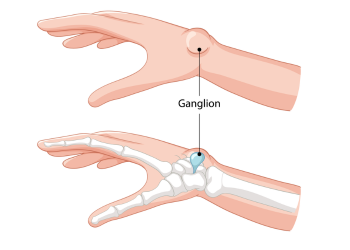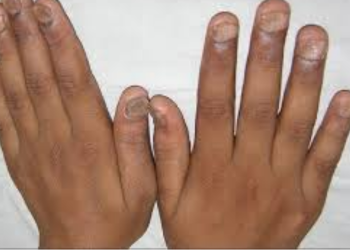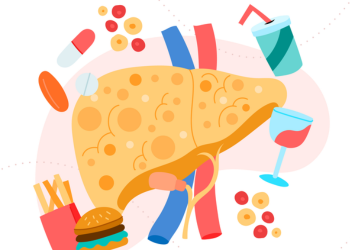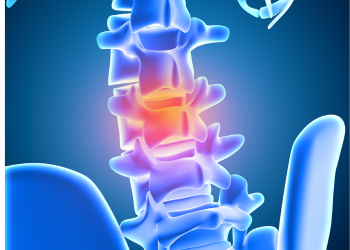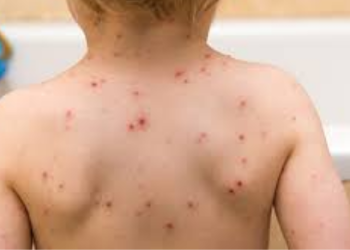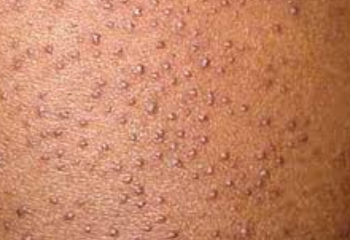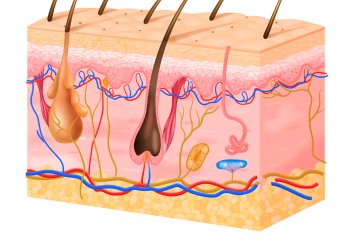
HOMEOPATHY is a system of medicine where
late eruption of teeth is well covered and easily treated. Usually, homeopathy
treats the causes, and the problems get automatically solved. Each child
presents a different problem when they have trouble teething, and homeopathy has
the answer to most of these. Late teething is a condition in which baby teeth
erupt late in children. If a child is over 12 months old and has not started
teething, it is considered late teething. It may lead to negative complications
later, such as tooth decay, periodontal disease, and misaligned permanent teeth.
Children will start to get
their first tooth around the age of 6 months and will have a full set of teeth
by about 2 or 2.5 years old. However, not all children have the same teething patterns.
In each child, the
teething process is completely different; some children teeth early, some
children teeth late. The number of teeth in a child is usually equal to the
number of months minus 4. Normally, when a child is 6 months old, the first
tooth will erupt. Children begin to erupt their lower central incisors first, on
average, 10 upper teeth and 10 lower teeth forms at which time the child is
about 3 years old. If a child is 13 months old and still has no teeth, it can
be confirmed that the child is teething late.
According to the
general standard
- At the age
of 7 months, the incisors begin to erupt
- At 11
months, all 4 central incisors erupt
- At 15
months, 4 more lateral incisors erupt
- At 19
months, 4 more premolars erupt
- At 23
months, 4 more canines erupt
- At 27
months, 4 more molars erupt
If children have late teething accompanied by stunting, lack of height and
weight, difficulty sleeping, night sweats, etc., it is likely that the child's
late teething may be due to an inadequate diet.
However, if
after 12 months, the child still has not teethed, it proves that the child is
teething late, parents should take the child to the dentist for examination and
timely intervention.
CAUSES
Due to genetics:
One of the main reasons for late teething in children is genetics.
Consider your
family history If so, you may need to wait longer for your child to teeth.
Due to different
birth times: Premature babies, underweight babies often have a slower rate of
teething than babies born full-term and at a normal weight.
Oral cavity
infection: If a child has gingivitis or oral cavity infection, it can lead to
late teething.
Hypothyroidism can
cause delayed teething in children.
Congenital
causes
Premature
babies often have a slower rate of teething than babies born full-term.
Vitamin D
deficiency
Calcium deficiency
Lack of MK7
Excessive
phosphorus absorption
Malnutrition.
Some diseases
in children: Children with Down syndrome or children with abnormal pituitary gland
problems
COMPLICATIONS
Permanent teeth
will erupt misaligned due to the baby teeth’s delayed eruption too slowly.
Permanent teeth
appear at the same time as slow-erupting baby teeth, creating "double rows
of teeth"; a rare case is that permanent teeth will erupt before baby
teeth. As a result, baby teeth and permanent teeth coexist, causing the baby to
have two rows of teeth.
Periapical
inflammation due to teeth still under the gum surface.
Tooth decay,
even when the teeth are still under the gums, bacteria that cause tooth decay
can still develop. This condition can spread, causing the child to have
cavities in many teeth at the same time.
PREVENTION
Right from the
stage of pregnancy and breastfeeding, mothers should eat a diverse and
nutritious diet, and should not be too restrictive. Importantly, it is
necessary to provide adequate nutrients such as calcium and vitamins for the
fetus to develop as fully as possible
Supplement with
400 IU of vitamin D per day for infants under 1 year
Ensure a
balanced daily diet for children, especially milk and dairy products, animal
foods, and fats.
The diet for
children with late teething should ensure the elements of sugar, protein,
starch, and fat. You can add cooking oil to your baby's porridge
Give your child
more fresh fruits, juices, or fruit puree
Milk, yogurt, or
cheese can be added to the diet
Make your child eat
at regular times and avoid snacking.
Increase milk
intake to 500-800ml per day without mixing with water or porridge
Encourage children
to get enough sleep and ensure they have some daily activity.
FAQS
What causes a baby to be late teething?
Possible causes of delayed baby teething include premature birth,
low birth weight, poor nutrition, or genetics. Syndromes, developmental or
endocrine disorders, might also delay tooth eruption
What age is late for teeth?
While it's recommended to speak with a dental professional if they don't
have teeth when they turn nine months, remember that the normal age range
for a baby's first tooth is wide and ranges from four to 15 months! By the time
they turn 11 months old, most children will have four teeth.
HOMEOPATHIC
MEDICINES
Calcarea
phosphoricum
Calcarea
flouratum
Kreosotum

